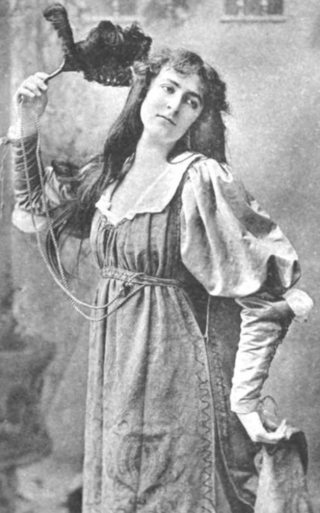Top Qs
Timeline
Chat
Perspective
Vera Beringer
British actress From Wikipedia, the free encyclopedia
Remove ads
Vera Beringer (2 March 1878 – 29 January 1964) was a British actress and writer. As a child she became well known for playing Little Lord Fauntleroy on the London stage. Later she was a playwright, sometimes using the byline Henry Seton.
Remove ads
Early life
Vera Beringer was born in London in 1878,[1][Notes 1] the younger daughter of German-born pianist Oscar Beringer and American-born novelist and playwright Aimée Daniell Beringer.[2] Her sister was actress Esme Beringer.[3] Her brother Guy Beringer was a journalist, credited with coining the word "brunch" in 1895.[4] She attended Praetoria House school in Folkestone, together with Ford Madox Ford and Elsie Martindale, who was to become Ford's wife.[5]
Remove ads
Career
Summarize
Perspective

Beringer became internationally famous in childhood[6] for originating the role of Little Lord Fauntleroy on the London stage in 1888.[7][8] She was coached in stagecraft by Madge Kendal.[9] As a teen, she played Juliet to her sister's Romeo in a production of Romeo and Juliet.[10] Other stage appearances included roles in The Pillars of Society (1889),[11] The Prince and the Pauper (1890),[12] That Girl (1890), On a Doorstep (1890),[13] Holly Tree Inn (1891),[14][15] Richelieu (1896), Our Boys (1896),[16] The Pilgrim's Progress (1896),[17] My Lady's Orchard (1897),[18] A Warm Member (1898),[13] Shadows on the Blind (1898),[13] Alone in London (1900),[19] The Broken Melody (1902),[20] Warp and Woof (1904),[20] Fanny and the Servant Problem (1908),[1] The Whip (1910),[1] The Odd Woman (1912),[21] The Vision of Delight (1912),[21] The Absent-Minded Husband (1913),[21] The Morning Post (1913),[21][22] and The Man from Blankley's (1930). During World War I, she and her sister entertained American and British troops in London.[23] She played Gertrude to her sister's Hamlet in 1938, and the sisters gave further Shakespeare performances during World War II.[3]
Beringer wrote at least nineteen plays, often under the pen name "Henry Seton",[1][20][21][24] including The Boys (1908), False Dawn (1910, with Morley Roberts), Pierrot's Little Joke (1912), Three Common People (1912), A Penny Bunch (1912-1913), The Blue-Stocking (1913, with Mesley Down; an adaptation of Molière's Les Femmes Savantes),[25] Set a Thief (1915),[26] Lucky Jim (1915), Daring (1917), A Pair (1917), The Honourable Gertrude (1918), Biffy (1920, with William Ray), Beltane Night (1923), The Painted Lady (1924),[27] Alice and Thomas and Jane (1932), House Full (1933), and It Might Happen to You (1937).[28] Her play Another Man's Life was adapted for television in 1957.
Lewis Carroll wrote a limerick titled "To Miss Vera Beringer".[29] In 1933 Vera Beringer and Madge Kendal appeared together as speakers in London, advocating for male teachers and headmasters at boys' schools.[30]
Remove ads
Personal life
Beringer lived in Hove in her later years, and died in 1964, aged 85 years, at a nursing home in Brighton.[3] She left all her property to her sister, who survived her.[31]
Notes
- Though some sources that give 1879 as the year, Vera Beringer's birth was registered in London in 1878; ''Civil Registration Birth Index'', via Ancestry.com
References
External links
Wikiwand - on
Seamless Wikipedia browsing. On steroids.
Remove ads

